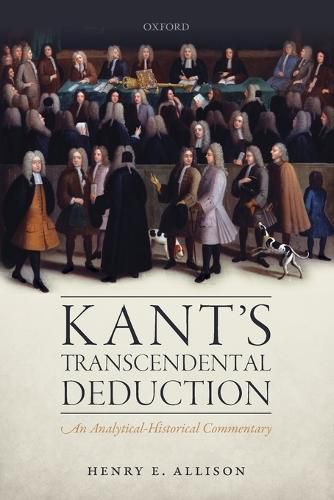Readings Newsletter
Become a Readings Member to make your shopping experience even easier.
Sign in or sign up for free!
You’re not far away from qualifying for FREE standard shipping within Australia
You’ve qualified for FREE standard shipping within Australia
The cart is loading…






Henry E. Allison presents an analytical and historical commentary on Kant"s transcendental deduction of the pure concepts of the understanding in the Critique of Pure Reason. He argues that, rather than providing a new solution to an old problem (refuting a global skepticism regarding the objectivity of experience), it addresses a new problem (the role of a priori concepts or categories stemming from the nature of the understanding in grounding this objectivity), and he traces the line of thought that led Kant to the recognition of the significance of this problem in his ‘pre-critical’ period. In addition to the developmental nature of the account of Kant"s views presented here, two distinctive features of Allison’s reading of the deduction are a defense of Kant"s oft criticized claim that the conformity of appearances to the categories must be unconditionally rather than merely conditionally necessary (the ‘non-contingency thesis’) and an insistence that the argument cannot be separated from Kant"s transcendental idealism (the ‘non-separability thesis’).
$9.00 standard shipping within Australia
FREE standard shipping within Australia for orders over $100.00
Express & International shipping calculated at checkout
Henry E. Allison presents an analytical and historical commentary on Kant"s transcendental deduction of the pure concepts of the understanding in the Critique of Pure Reason. He argues that, rather than providing a new solution to an old problem (refuting a global skepticism regarding the objectivity of experience), it addresses a new problem (the role of a priori concepts or categories stemming from the nature of the understanding in grounding this objectivity), and he traces the line of thought that led Kant to the recognition of the significance of this problem in his ‘pre-critical’ period. In addition to the developmental nature of the account of Kant"s views presented here, two distinctive features of Allison’s reading of the deduction are a defense of Kant"s oft criticized claim that the conformity of appearances to the categories must be unconditionally rather than merely conditionally necessary (the ‘non-contingency thesis’) and an insistence that the argument cannot be separated from Kant"s transcendental idealism (the ‘non-separability thesis’).